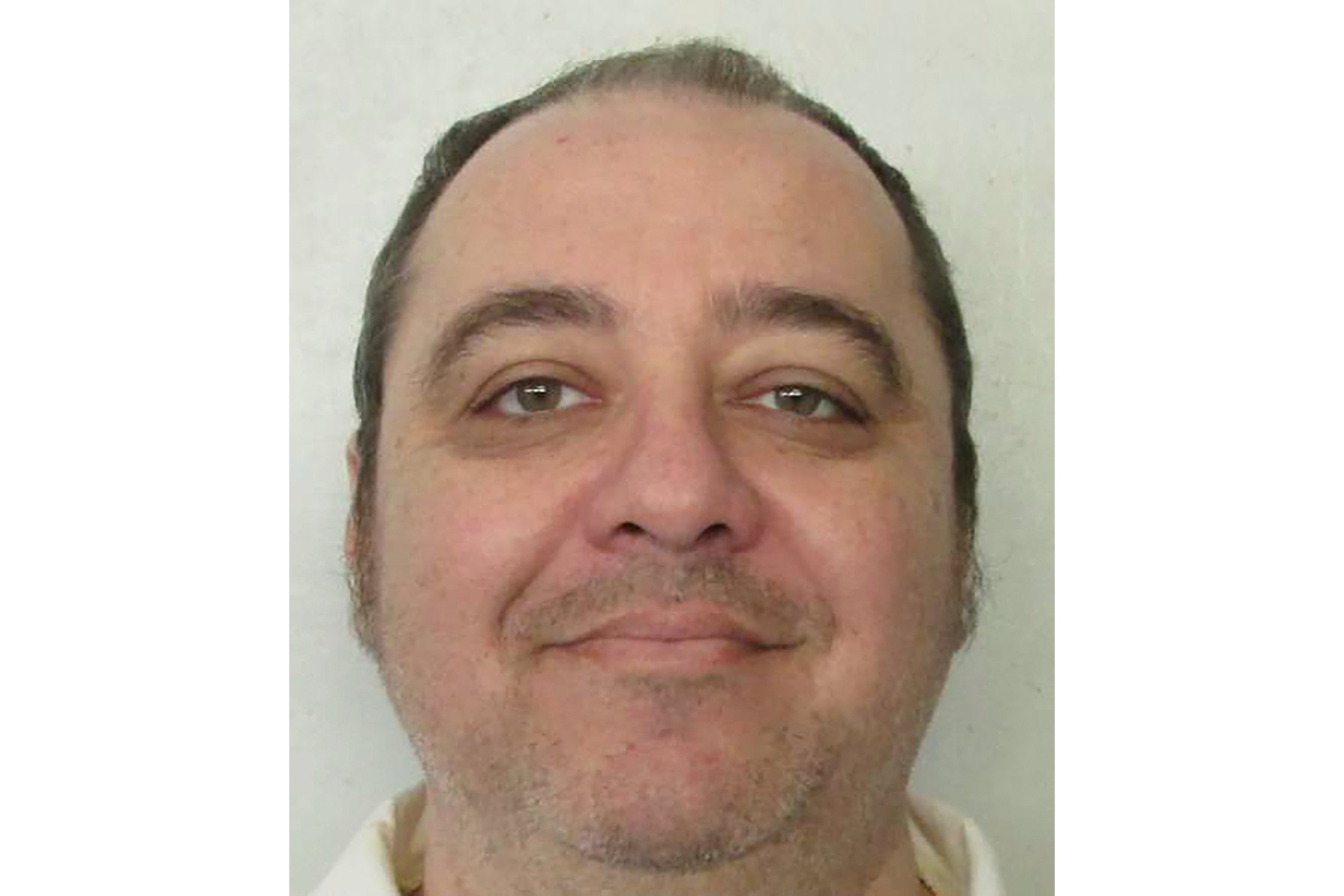Alabama inmate opposes being 'test subject' for new nitrogen execution method
Attorneys for an inmate are asking the Alabama Supreme Court to reject the state's request to set an execution date for him using the new execution method of nitrogen hypoxia

Your support helps us to tell the story
From reproductive rights to climate change to Big Tech, The Independent is on the ground when the story is developing. Whether it's investigating the financials of Elon Musk's pro-Trump PAC or producing our latest documentary, 'The A Word', which shines a light on the American women fighting for reproductive rights, we know how important it is to parse out the facts from the messaging.
At such a critical moment in US history, we need reporters on the ground. Your donation allows us to keep sending journalists to speak to both sides of the story.
The Independent is trusted by Americans across the entire political spectrum. And unlike many other quality news outlets, we choose not to lock Americans out of our reporting and analysis with paywalls. We believe quality journalism should be available to everyone, paid for by those who can afford it.
Your support makes all the difference.An Alabama inmate would be the test subject for the “experimental” execution method of nitrogen hypoxia, his lawyers argued, as they asked judges to deny the state’s request to carry out his death sentence using the new method.
In a Friday court filing, attorneys for Kenneth Eugene Smith asked the Alabama Supreme Court to reject the state attorney general’s request to set an execution date for Smith using the proposed new execution method. Nitrogen gas is authorized as an execution method in three states but it has never been used to put an inmate to death.
Smith's attorneys argued the state has disclosed little information about how nitrogen executions would work, releasing only a redacted copy of the proposed protocol.
“The state seeks to make Mr. Smith the test subject for the first ever attempted execution by an untested and only recently released protocol for executing condemned people by the novel method of nitrogen hypoxia,” Smith’s attorneys wrote.
Under the proposed method, hypoxia would be caused by forcing the inmate to breathe only nitrogen, depriving them of oxygen needed to maintain bodily functions and causing them to die. Nitrogen makes up 78% of the air inhaled by humans and is harmless when inhaled with oxygen. While proponents of the new method have theorized it would be painless, opponents have likened it to human experimentation.
The lawyers said Smith “already has been put through one failed execution attempt” in November when the state tried to put him to death via lethal injection. The Alabama Department of Corrections called off the execution when the execution team could not get the required two intravenous lines connected to Smith.
His attorneys said Smith has ongoing appeals and accused the state of trying to move Smith to “the front of the line" ahead of other inmates in order to moot Smith’s lawsuit challenging lethal injection procedures.
Alabama authorized nitrogen hypoxia in 2018, but the state has not attempted to use it until now to carry out a death sentence. Oklahoma and Mississippi have also authorized nitrogen hypoxia, but have not used it.
Trip Pittman, the former Alabama state senator who proposed the new execution method, has disputed criticism that the method is experimental. He said that while no state has carried out a death sentence with nitrogen, people have died by breathing nitrogen during industrial accidents and suicide attempts, so the effects are known.
Smith was convicted in the 1988 murder-for-hire slaying of Elizabeth Sennett in Alabama’s Colbert County.
Prosecutors said Smith was one of two men who were each paid $1,000 to kill Sennett on behalf of her husband who was deeply in debt and wanted to collect on insurance. The other man convicted in the killing was executed in 2010. Charles Sennett, the victim’s husband and a Church of Christ pastor, killed himself when the investigation began to focus on him as a possible suspect, according to court documents.